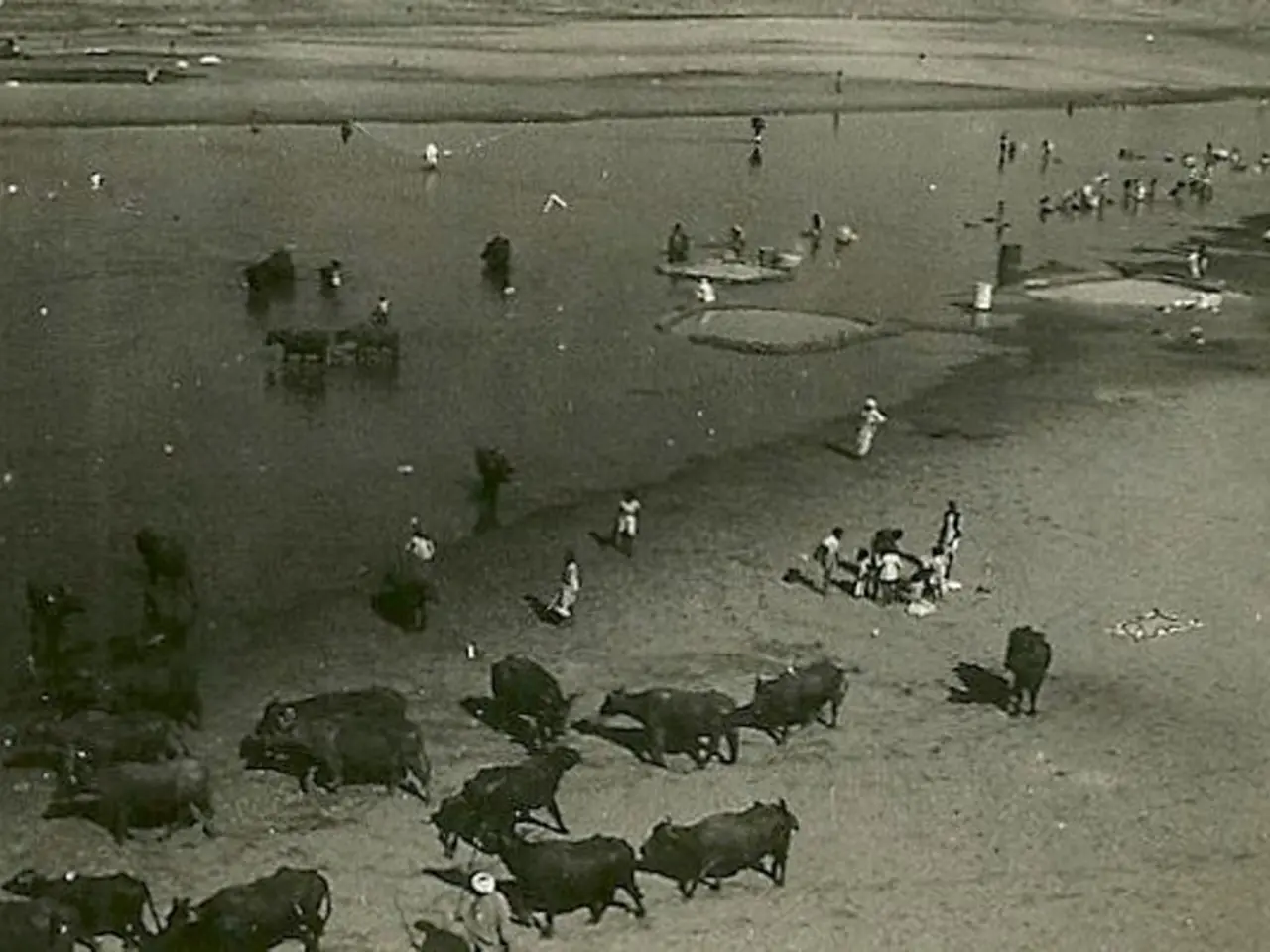Merz and Pistorius contend for German command in NATO leadership
In the wake of Russia's attack on Ukraine, Germany and NATO have significantly revised their stance on military and financial contributions within the alliance. The current German Chancellor, Friedrich Merz, has reaffirmed Germany's claim for a leading role within NATO, and plans to transform the Bundeswehr into an army with "showcase character" within the alliance.
Germany has committed to a major increase in defense spending, with federal defense spending set to reach 2.4% of GDP in 2025, and gradually rising to 3.5% by 2029 [1]. This follows a constitutional amendment in March 2025 that allows Germany to fund higher defense budgets through increased debt issuance, enabling ongoing increased military expenditure beyond previous limits [1].
Chancellor Merz has expressed strong political determination to build Europe's strongest military. He declared that military buildup is a top priority and pledged to provide whatever funding the military needs to achieve this goal, reflecting a decisive break from the past when Germany spent between 1% and 2% of GDP on defense [3]. Germany is currently the third-largest military supporter of Ukraine after the U.S. and the UK, indicating a more engaged role militarily in the region [3].
NATO as a whole has escalated its defense spending targets. In June 2025, NATO members agreed to a historic new benchmark of investing 5% of GDP annually by 2035 on core defense needs and defense-related security spending, more than doubling the previous guideline of 2% [2]. This new target includes not only direct defense spending (3.5% of GDP) but also 1.5% on related infrastructure, networks, and industry, aiming to strengthen military preparedness and deterrence capabilities across the alliance [2][4].
Many European NATO members, including Germany, are working to meet these raised targets. As of 2024, European and Canadian NATO members increased their defense spending on average to 2.02% of GDP, up from 1.66% in 2022, reflecting a clear trend toward greater financial commitment to defense [4].
At the NATO summit in The Hague, the alliance set a goal of wanting to spend five percent of its economic output on the defense area in the future. Merz condemned the latest attacks by Russia on civilian targets in Ukraine, calling them acts of terrorism. He has also been in good contact with US President Donald Trump regarding the potential delivery of a larger weapons system to Ukraine, specifically an additional Patriot system [5].
Merz intends to acquire new equipment and pay attention to new technologies for the Bundeswehr, and has promised further support for Ukraine to improve air defense [5]. His government plans to use new financial resources to make the Bundeswehr the strongest conventional army in the European Union, and to strengthen the German and European defense industry [6].
NATO Secretary General Mark Rutte has praised the increase in German defense spending and accepted the offer of a German leading role in Europe. He described Germany as a "driving force" in the alliance [7]. Defense Minister Boris Pistorius has emphasised that the Russian attack on Ukraine has made NATO defense a priority again, and that Europeans must take on more responsibility within NATO, with Germany leading the way [8].
Germany joined NATO 70 years ago on May 6, 1955. In recent years, the country has been criticised for not meeting its defence spending obligations, but the current policy shift marks a significant change in this approach. With Sweden and Finland joining NATO most recently under the impression of the Russian attack on Ukraine, it appears that the alliance is unified and committed to countering security threats, particularly from Russia [4].
- The current policy shift in Germany, as spearheaded by Chancellor Friedrich Merz, involves a significant increase in defense spending to transform the Bundeswehr and strengthen Germany's role within NATO, specifically in policy-and-legislation and politics.
- The recent escalation in defense spending targets by NATO, with Germany taking a leading role, reflects a shift towards more emphasis on military and financial contributions in the alliance, particularly in the context of general-news events such as Russia's attack on Ukraine.








